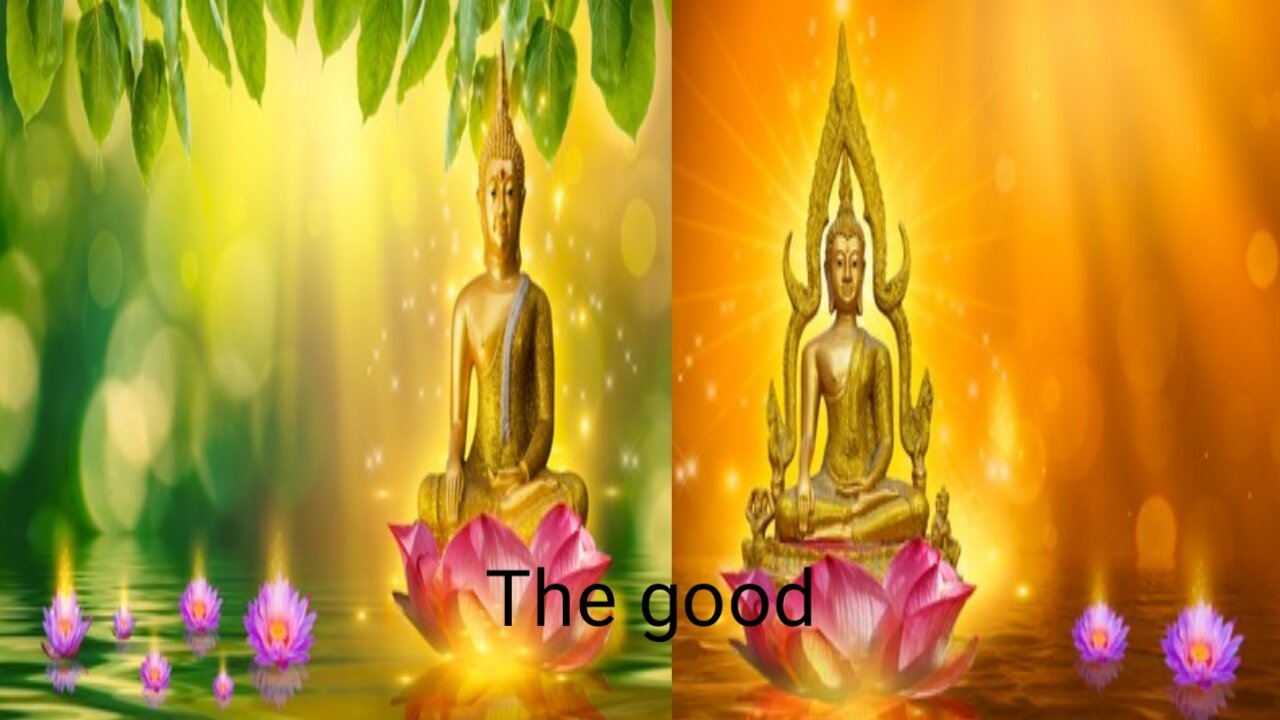Premium Only Content

Gautam Bhuddha live
Buddha, (Sanskrit: “Awakened One”) clan name (Sanskrit) Gautama or (Pali) Gotama, personal name (Sanskrit) Siddhartha or (Pali) Siddhattha, (born c. 6th–4th century BCE, Lumbini, near Kapilavastu, Shakya republic, Kosala kingdom [now in Nepal]—died, Kusinara, Malla republic, Magadha kingdom [now Kasia, India]), the founder of Buddhism, one of the major religions and philosophical systems of southern and eastern Asia and of the world. Buddha is one of the many epithets of a teacher who lived in northern India sometime between the 6th and the 4th century before the Common Era.
Buddha
Home
Philosophy & Religion
Ancient Religions & Mythology
Buddha
founder of Buddhism
Alternate titles: Śākyamuni, Gautama Buddha, Gotama Buddha, Sage of the Śākyas, Shaka, Shaka Nyorai, Shakyamuni, Siddhartha Gautama, Siddhattha
BY Donald S. Lopez | View Edit History
FAST FACTS
2-Min Summary
Buddha, (Sanskrit: “Awakened One”) clan name (Sanskrit) Gautama or (Pali) Gotama, personal name (Sanskrit) Siddhartha or (Pali) Siddhattha, (born c. 6th–4th century BCE, Lumbini, near Kapilavastu, Shakya republic, Kosala kingdom [now in Nepal]—died, Kusinara, Malla republic, Magadha kingdom [now Kasia, India]), the founder of Buddhism, one of the major religions and philosophical systems of southern and eastern Asia and of the world. Buddha is one of the many epithets of a teacher who lived in northern India sometime between the 6th and the 4th century before the Common Era.
Buddha
Buddha
See all media
Born: Lumbini Nepal
Died: India
Notable Family Members: mother Maha Maya
His followers, known as Buddhists, propagated the religion that is known today as Buddhism. The title buddha was used by a number of religious groups in ancient India and had a range of meanings, but it came to be associated most strongly with the tradition of Buddhism and to mean an enlightened being, one who has awakened from the sleep of ignorance and achieved freedom from suffering. According to the various traditions of Buddhism, there have been buddhas in the past and there will be buddhas in the future. Some forms of Buddhism hold that there is only one buddha for each historical age; others hold that all beings will eventually become buddhas because they possess the buddha nature (tathagatagarbha).
-
 1:08:07
1:08:07
Bek Lover Podcast
8 hours agoInteresting Times with Bek Lover Podcast
27.7K -
 1:51:12
1:51:12
Tate Speech by Andrew Tate
11 hours agoEMERGENCY MEETING EPISODE 105 - UNBURDENED
189K96 -
 1:01:18
1:01:18
Tactical Advisor
14 hours agoBuilding a 308 AR10 Live! | Vault Room Live Stream 016
163K12 -
 2:17:02
2:17:02
Tundra Tactical
1 day ago $28.36 earnedTundra Nation Live : Shawn Of S2 Armament Joins The Boys
261K28 -
 23:22
23:22
MYLUNCHBREAK CHANNEL PAGE
2 days agoUnder The Necropolis - Pt 5
206K67 -
 54:05
54:05
TheGetCanceledPodcast
1 day ago $14.79 earnedThe GCP Ep.11 | Smack White Talks Smack DVD Vs WorldStar, Battle Rap, Universal Hood Pass & More...
199K35 -
 8:30
8:30
Game On!
18 hours ago $0.85 earnedLakers BLOCKBUSTER trade! Luka Doncic is coming to LA!
30.4K4 -
 48:29
48:29
hickok45
22 hours agoSunday Shoot-a-Round # 266
26.7K10 -
 15:18
15:18
SternAmerican
3 days agoStern American with Sam Anthony from YourNews.com
20K1 -
 1:03:13
1:03:13
PMG
1 day ago $1.94 earnedRFK, Tulsi & Kash Hearings, the Plane Crash in the Potomic, & Ozempic
18.1K1